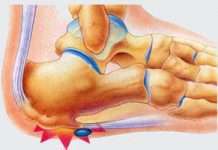Hyaluronic acid (HA) is a naturally occurring sugar molecule vital for keeping the body’s connective tissues hydrated and healthy. While well-known in skincare for its moisturizing properties, oral HA supplements are gaining attention for potential systemic benefits. This article breaks down what the science says about taking HA internally, covering its effects on skin, hair, joints, and eyes, along with available forms and safety considerations.
How Hyaluronic Acid Works in the Body
HA’s primary function is to bind to water, acting as a lubricant and structural support in skin, joints, and eyes. This water-retaining ability is key to its potential benefits. When taken as a supplement, HA aims to enhance these natural functions from within. However, research is ongoing to fully understand the extent of its effectiveness compared to topical applications.
Proven Benefits of Oral Hyaluronic Acid
Studies suggest that oral HA supplementation may deliver noticeable improvements in several areas:
- Enhanced Skin Hydration: Research indicates that HA supplements can increase skin moisture, elasticity, and oil production. A 2017 study showed that oral HA reduced skin dryness and roughness.
- Reduced Wrinkles: Some trials found that consistent supplementation (120mg daily) led to visible improvements in wrinkles around the eyes within eight weeks.
- Healthier Hair and Nails: Preliminary research suggests that HA, often combined with other nutrients, can improve hair hydration and reduce nail brittleness. A 2014 study reported improvements in hair dryness and nail cracking after eight weeks.
- Dry Eye Relief: HA supplements, combined with topical eye drops, have demonstrated improved tear film stability and corneal healing in patients with dry eye disease.
- Joint Pain Management: HA acts as a lubricant in joints, potentially easing pain and stiffness, especially in osteoarthritis. A 2024 review found that daily doses of 30-300mg improved pain, flexibility, and function.
Available Forms and Dosage
HA supplements come in several formats:
- Capsules: The most common form, typically containing 100-1,000mg per serving.
- Gummies: Chewable supplements often combined with biotin, vitamins C/E, and collagen (120-250mg HA per serving).
- Powder: Dissolvable in water (120-215mg per serving).
- Liquid: Ready-to-drink options containing around 100mg per tablespoon.
Safety and Potential Side Effects
While generally safe, oral HA supplements carry some risks:
- Allergic Reactions: Mild reactions (swelling, itching) are possible, though severe cases are rare.
- Allergy Concerns: Supplements derived from chicken combs may trigger reactions in individuals with feather or egg allergies.
- Contraindications: Not recommended for children, pregnant or breastfeeding women, or those with a cancer history due to potential effects on cellular growth.
Before starting supplementation, consult a doctor, especially if you have underlying health conditions or take other medications.
Conclusion
Hyaluronic acid supplements hold promise for enhancing skin hydration, joint health, and overall tissue function. While research is ongoing, current evidence suggests potential benefits for those seeking internal support for moisture retention and connective tissue health. Always prioritize safety by discussing supplementation with a healthcare professional to determine if it’s right for your individual needs.


























































